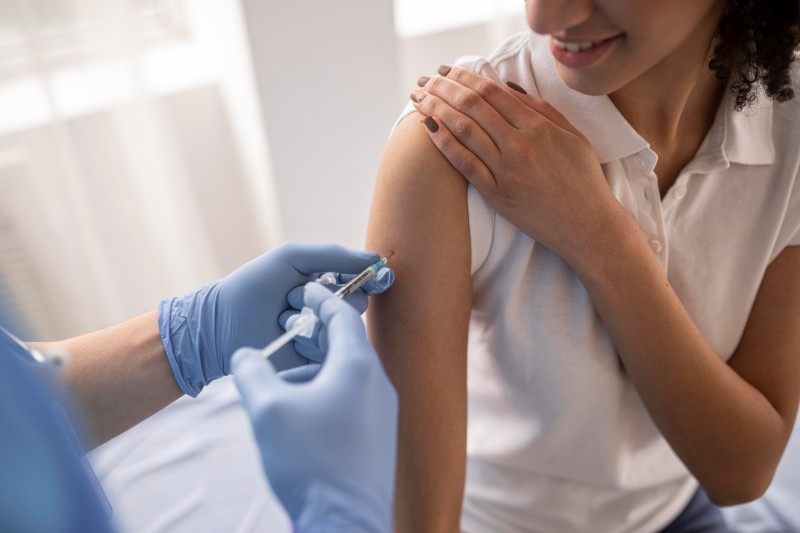Vaccinations are one of the most effective ways to protect your loved ones from serious illnesses and ensure long-term health and wellness. Over the years, vaccines have helped prevent countless diseases, saving millions of lives and reducing the burden of preventable infections. In today’s fast-paced world, where travel and exposure to new viruses are common, staying up to date with recommended immunizations is more important than ever. From routine childhood vaccines to adult boosters, timely vaccination shields your family from life-threatening diseases and contributes to community health.

The Importance of Family Vaccination
Vaccines work by training the body’s immune system to recognize and fight harmful pathogens. When everyone in the household is protected, the entire family benefits from reduced risk of disease transmission. Vaccinations not only keep you safe but also protect vulnerable members, such as infants, pregnant women, and the elderly, who may have weaker immune systems. For example, the measles vaccine is crucial because measles is highly contagious and can lead to severe complications if not prevented. Similarly, the hepatitis B vaccine guards against a virus that attacks the liver and can cause long-term health issues.
Keeping track of routine vaccinations can sometimes feel overwhelming, but healthcare providers offer schedules for both children and adults to make the process easier. Regular check-ups are a great opportunity to review your vaccination status and get any necessary boosters.
Key Vaccines to Consider for Your Family
Different vaccines are recommended at various stages of life to maintain immunity and prevent serious illnesses. Here are some of the most important vaccines you should prioritize for your family:
1. COVID Vaccines: The COVID-19 pandemic highlighted the critical role of vaccines in controlling infectious diseases. Getting the covid vaccine protects against severe illness, hospitalization, and complications caused by the coronavirus. Updated boosters are recommended to maintain immunity as the virus evolves. While most people experience only mild covid vaccine side effects—such as soreness at the injection site, fatigue, or low-grade fever—these are typically short-lived and far less dangerous than the disease itself.
2. Shingles Vaccine: Shingles, caused by the reactivation of the chickenpox virus, can lead to painful rashes and nerve complications in older adults. The shingles vaccine is highly recommended for people over 50 to prevent outbreaks and reduce long-term nerve pain.
3. Hepatitis B Vaccine: Hepatitis B is a serious liver infection that can become chronic and lead to liver cancer or cirrhosis. The hepatitis b vaccine is recommended for infants, healthcare workers, and anyone at risk of exposure to infected blood or body fluids.
4. Measles Vaccine: Despite being preventable, measles outbreaks still occur in areas with low vaccination rates. The measles vaccine, often given as part of the MMR (measles, mumps, and rubella) shot, provides strong protection and helps prevent complications such as pneumonia and encephalitis.
By ensuring that your family members receive these essential vaccines, you significantly reduce their risk of contracting serious illnesses and spreading them to others.
Addressing Concerns About Vaccine Safety
Some people hesitate to get vaccinated because of concerns about side effects or misinformation. However, vaccines undergo rigorous testing to ensure they are safe and effective before approval. Most side effects, such as mild fever, fatigue, or injection-site soreness, are temporary and a normal part of the immune response. For example, while covid vaccine side effects can include mild flu-like symptoms, these are short-lived and indicate that the body is building protection. The benefits of vaccination far outweigh the minimal risks.
It’s also important to rely on trusted sources—like healthcare providers, the Centers for Disease Control and Prevention (CDC), and the World
Health Organization (WHO)—for accurate vaccine information. Avoiding or delaying vaccinations increases the risk of disease outbreaks and can have serious consequences for public health.
Health & Wellness Tips for a Vaccinated Family
- Stay Informed: Keep a record of your family’s vaccinations and check with your healthcare provider about any needed updates.
- Follow Recommended Schedules: Children, adults, and seniors all have different vaccination timelines—ensure everyone stays on track.
- Practice Healthy Habits: Vaccines are powerful, but they work best alongside good nutrition, exercise, and regular health check-ups.
- Educate Your Family: Talk to your children and loved ones about why vaccines are important for their health and the health of others.
Final Thoughts
Timely vaccinations are a cornerstone of preventive healthcare, offering protection not only for individuals but also for the entire community. From the covid vaccines and shingles vaccine to the hepatitis b vaccine and measles vaccine, each shot plays a vital role in keeping your family healthy and safe. By staying informed, following recommended schedules, and addressing concerns about covid vaccine side effects, you can ensure that your loved ones remain protected against preventable diseases—today and for years to come.
Frequently Asked Questions (FAQs)
Q1. Are covid vaccines safe for children and adults?
Yes. Extensive studies have shown that covid vaccines are safe and effective for most people, including children, with only mild and temporary side effects.
Q2. What are common covid vaccine side effects?
Typical side effects include soreness at the injection site, mild fever, fatigue, or headache. These symptoms usually resolve within a few days.
Q3. Who should get the shingles vaccine?
The shingles vaccine is recommended for adults aged 50 and older, even if they have previously had chickenpox.
Q4. How many doses of the hepatitis b vaccine are needed?
The hepatitis b vaccine is usually given in a series of three or four doses, depending on the schedule recommended by your healthcare provider.
Q5. When should children receive the measles vaccine?
Children typically receive their first measles vaccine dose at 12–15 months of age and a second dose between 4–6 years old.
Get vaccinated with confidence! Visit our website https://tscmlk.com/ or call us at (469) 981-0529 to learn more and book your shot.
